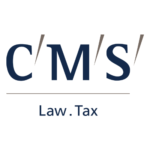Lauren Hepburn reviews a case providing a reminder to be clear, certain and specific in the drafting of LADs provisions It was recognised that the very fact that Schedule 10, a bespoke LAD regime, was included in the contract demonstrates that the parties intended for it to have some legal effect. As we enter a …
Continue reading "Construction focus: Liquidated damages provisions in construction contracts"
This post is only available to members.
Wills & Trusts Law Reports | Summer 2022 #187W was the founder of WBL, an internationally renowned publisher of children’s books. In 1989 W instructed solicitors to create an employee trust (WBET) for WBL and transferred 51% of the WBL shares into WBET. The remainder of the shares were divided amongst family trusts established by W.
W died in 1991 and the shares in WBL held by the family trusts were distributed to employees and officers of WBL through a qualifying employee share ownership trust and a share incentive plan. Some of those shares were acquired from employees by the WBL Employee Share Ownership Plan (ESOP).
<...
Kayleigh Biswas sets out the issues encountered in Derhalli v Derhalli, where the delayed sale of a former matrimonial home led to a plethora of litigation To ascertain the meaning of an order, the court would need to consider what a reasonable person, having all the background knowledge, would have understood the order to mean, …
Continue reading "Consent orders: A matter of interpretation"
This post is only available to members.
Susanne Hinde and Ayesha Khan consider a case which reiterates the importance of clear wording when drafting break clauses Scullindale argued that the words ‘at any time’ in the break clause imposed an obligation on the council to serve a break notice ‘at any reasonable time’. It argued that the council had failed to serve …
Continue reading "Break clauses: A legal quagmire"
This post is only available to members.
Emma Pinkerton and Marcus Barclay look at Fancourt J’s recent decision on the unusual case of Monsolar IQ Ltd v Woden Park Ltd The tenant’s case was that there was a clear mistake in the indexation formula so that the lease should be read in its intended sense rather than literally. The claim in Monsolar …
Continue reading "Index-linked rent review: The court’s commercial approach to interpretation"
This post is only available to members.
David Manda and Lewis Couth highlight some of the key cases to note It is likely to be prudent for any tenant considering an early departure from leasehold premises to take specialist legal and surveying advice as part of its overall exit strategy. Much of the specialist property litigator’s recent practice will have been dominated …
Continue reading "Commercial landlord and tenant round-up: Key decisions despite Covid chaos"
This post is only available to members.
George Mallet considers the practical implications of the recent Supreme Court judgment in Duval In affirming the distinction between the absolute and permissive clauses, the Supreme Court implicitly re-affirmed the established principles on the construction of contractual terms as set out (inter alia) in Arnold. In Duval v 11-13 Randolph Crescent Ltd [2020], the Supreme …
Continue reading "Residential leases: Case study: Clarifying a landlord’s obligations"
This post is only available to members.
Tiffany Scott QC and Charlotte Black interpret the Supreme Court’s reversal of the unanimous Court of Appeal decision on the question of reasonableness in Sequent Nominees ‘The majority held that the courts below had treated the question whether consent had been unreasonably refused as effectively determined by an erroneous construction of the lease.’ In Sequent …
Continue reading "Interpretation of leases: An erroneous construction"
This post is only available to members.
Kate Raybould highlights the woes of the Post Office ‘The claimants argued that liability for losses was limited to losses caused by their own default or negligence, whereas the Post Office maintained that liability was effectively strict for any losses, howsoever caused.’ Although it may not be immediately apparent when you pop in for a …
Continue reading "Implied terms: Grief in Greendale"
This post is only available to members.







